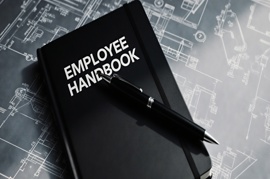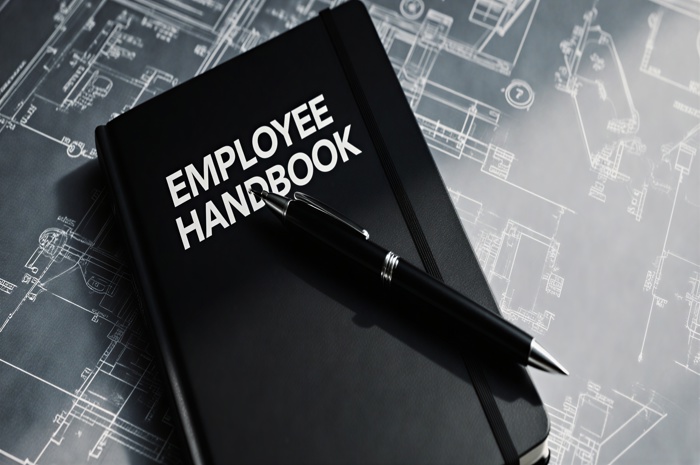Setting up a company can be daunting, stressful task for someone who has never done it before. UTR numbers, tax returns, accounting periods, and more; these terms can leave people feeling extremely overwhelmed. The main point of confusion we hear from customers is the disparities between HMRC and Companies House, and the contrasting filing obligations for each.
Load more
Do I need to inform HMRC when I set up a company?
19 February 2024 (Updated 15 May 2024)

Comments
Have you ever been left feeling confused about the differences between HMRC and Companies House, and how the filing requirements differ?
A lot of people confuse Companies House and HMRC as being the same entity, however, they are actually two separate bodies that are operated by the UK government. Companies House is responsible for all incorporations and dissolving of limited companies in the UK, whereas HMRC is responsible for tax collections, payments of state support, and administrating regulations (such as the national minimum wage, foreign exchange rates, and issuing national insurance numbers).
To officially become a limited company, you must register with Companies House. When registering, you will need to register your official company address, and then also choose the SIC codes that correctly identify what your company does, among other things. We've written an article called Setting Up a Company Online - Company Formation, which explains how to set up a company and what steps are involved.
Although Companies House and HMRC are separate entities, HMRC is informed when you incorporate your company, and they will automatically send you a UTR number (the unique taxpayer reference for your company) within 14 days. You do not need to request a UTR number from HMRC, as this will be sent automatically. Please note that if you have registered your company as a dormant company, then HMRC will not send a UTR number, as this is used for tax purposes only, and dormant companies are not liable to pay corporation tax. If you require a UTR number and have not received one within a few weeks of incorporating your company, then you will need to contact HMRC and request one. Alternatively, you can request one online here.
Once your company is set up and incorporated, the next thing to think about is how to file your returns and accounts. It is important to remember that you will need to wait for your first accounting period to end before you can submit your filings to HMRC and Companies House.
Companies are required to submit their abridged accounts (just the balance sheet) to Companies House, and they are required to submit a corporation tax return (CT600) with full accounts (income statement and balance sheet) to HMRC. Sometimes you are required to submit two CT600’s depending on the dates of your accounting period. You can find an article with more information about this called CT600 Filing where accounting period is more than 12 months. A lot of people can get confused, thinking that if they have submitted their accounts with their returns to HMRC, then Companies House will have received them as well – however, as they are separate entities this is not the case, and you will need to make separate submissions to both.
If you use our software to make your annual returns, it is super simple and easy to submit your accounts to Companies House as the software just extracting the balance sheet from your full accounts template for you (which is submitted to HMRC), meaning that you only have to create one set of accounts when submitting to both HMRC and Companies House. If you are interested in using our software to complete your filings, you can create an account with us and test out our software for free.
You can either choose to file the returns yourself, typically by using a filing software provider such as Easy Digital Filing, or you can have an agent complete and submit the filings on your behalf using their agent ID.
We also offer a Managed Filing service, which is where one of our account’s specialists will complete the filings for you (to both HMRC and Companies House, or as required), and then you will be able to review them before we submit on your behalf. For this service, we would just need an income statement and balance sheet (or a spreadsheet with your company’s income and expenditure for the period), in order for us to complete your filings for you. Additionally, we do offer a book-keeping add-on, which is where you can send bank statements for your accounting period instead, and the account’s specialist will create the spreadsheet and filings for you.
Whether you choose to file yourself or through an authorised agent, you will need to create a Government Gateway account for your company. You can create one here. To create the government gateway account for your company, you will need to have the company’s registration number, the date you started to do business (which will be the start date of your accounting period), and the date that your annual accounts are made up to. If filing yourself, you will also need to activate the corporation tax service in your Government Gateway account in order to submit your CT600 tax return, which is required by HMRC. To activate this service, you will need to log on to your company's Government Gateway account, click on ‘Get access to a tax, duty or scheme’, and then request the corporation tax activation code. This code takes 7-10 days to arrive, so it is important to double check that the corporation tax service has been activated long before your returns are actually due, to ensure you can still meet the filing deadlines.
In order to submit your returns, you will need to have the credentials of your company’s government gateway account (the username and password), and the UTR number for your company. You will create your government gateway credentials when you set up your account, and you will receive your company’s UTR number when you register your company. As mentioned earlier, HMRC will send you your company’s UTR number in the post within 14 days of your company being registered on Companies House - you do not need to inform them that you have set up the company as this will be sent automatically.
It is most important to remember, when you are submitting your accounts and returns, that Companies House and HMRC are separate entities. Just because you have filed your accounts with your CT600 to HMRC, doesn’t mean that Companies House has received them. You will need to make a separate submission of your abridged accounts to Companies House.
This goes both ways - especially when it comes to filing for dormant companies - because a lot people get confused, and believe that if they file dormant accounts to Companies House, it means that they have registered their company as dormant, and do not need to file a CT600. However, this is not always the case. You will always be expected to file your accounts to Companies House, whether your company is active or dormant, as Companies House require you to submit abridged accounts per accounting period. However, if your company is dormant, you do not necessarily have to submit a CT600 return for the accounting period. You will need to have informed HMRC before your accounting period has ended that your company is dormant, which you can do so by following this link here, or by calling them on 0300 200 3410 (if calling from within the UK) or on +44 151 268 0571 (if calling from outside of the UK).
Unless you inform HMRC that your company is dormant for the accounting period, you will receive a notice to file and be expected to submit a corporation tax return for the period. It is not enough just to submit dormant accounts to Companies House, as they are separate entities, and HMRC will not be notified that your company is dormant.

Author: Emma Cooper
Emma works in our front office team specialising in Small and Micro Accounting and Corporation Tax with marginal rate relief. She holds a First-class Degree in Accounting and Finance and when she's not supporting our customers, finds time to add to the wealth of information on our Knowledge Base. Aside from her professional life, Emma loves to travel and explore.
Read All articles by Emma CooperThis article is information only and has been prepared for general guidance on matters of interest only, and does not constitute legal, accounting, tax, investment or other professional advice or services. You should not act upon the information contained in this article without obtaining specific professional or legal advice. No representation or warranty (express or implied) is given as to the accuracy or completeness of the information contained in this article, and, to the extent permitted by law, Comdal Limited, its members, employees and agents do not accept or assume any liability, responsibility or duty of care for any consequences of you or anyone else acting, or refraining to act, in reliance on the information contained in this publication or for any decision based on it.


How Much Does Company Formation Cost? - A Guide to What to Expect


How Have Incorporations Been Affected By Identity Verification?


Benefits of being part of a small business vs a large corporation


Managing Your Business When Away on Holiday


UK SIC Codes - What They Are And How To Choose The Right One


What is closing down protection and when do I need it?


What HR policies should you put in place as a small business?


What to Know When You Change Company Structure


Why are UK businesses struggling?


How to Use Project Management Tools to Stay Organised